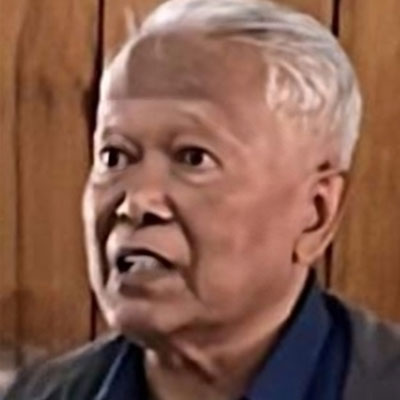 by Jozef MATTON, cicm
by Jozef MATTON, cicm
General Councilor
There have been consultations for either the appointment of Provincial Superiors or Provincial Councilors in all of the Provinces during the last few months. Some of the Provinces will still have consultations for the appointment of their Provincial Councilors at the end of the year.
We all know that these are not elections. In this regard, articles 91 to 93 of our Constitutions are clear. Consultations are a way to have all the confreres participate more actively in the life and governance of their Province.
Each confrere has the opportunity to explain to the General Government how he perceives his Province’s situation: who can lead the Province or collaborate in its governance as Provincial Superior or as a Councilor and why. Many of the confreres who participate in the consultations do so in this spirit.
Fallowing the appointments, a member of the General Government summarizes the contributions recorded on the consultation ballots of the confreres who took part in the consultations in that Province. He then submits it to the new Provincial Government as a working tool during their term of office.
Many confreres point out the location of the Province’s lights. They also indicate the shadows, the challenges, and the concerns. Finally, they note what the Provincial and his Council must address during their term in office!
Nevertheless, I am curious how many confreres consider what they can do to help solve or improve situations that they have identified. Sometimes, one gets the impression that the Province is only the business of the Superior Provincial and his Council.
Indeed, the Superior Provincial and his Council bear responsibility because the confreres have their trust in them by proposing them as possible leaders. However, the confrere’s responsibility should not be confined advising others!
Some Examples
- During consultations, several confreres express concern about
the temptation, if not the risk of depending on or favoring the confreres of certain nationalities. Is it only the responsibility of the Superior Provincial and his Councilors to make efforts to improve fraternity in an entity or a Province? Who is to blame for this predicament? The Superior Provincial? This scenario is promoted or even created by the confreres who are members of that District or Province. What criteria were used to recommend this or that confrere for Superior Provincial or Councilor? Is it because of his characteristics? Is it because he is a good friend of mine, or because we get along?
Articles 48 and following, under the common title “In Fraternal
Communion,” are clear! Art 50.1 explicitly states:
Each one helps to create a climate of mutual respect and trust in which we can share our experiences with one another. We will truly be brothers, particularly toward those experiencing difficulties.
Many beautiful texts and recommendations for fraternal life in our Provinces and Congregation can be found in the Guidelines for Multicultural Life in CICM. It is beneficial to read them and, more importantly, to put them into practice in our everyday lives. And this is not only the responsibility of the Superiors and their Councils.
Tsimba Ngoma Edouard, the former Superior General, in the introduction to the Guidelines for Multicultural Life in CICM that were published in 2010, wrote:
Many of our General Chapters have discussed the topic of internationality. The 13th General Chapter of 2005 affirmed that “our multicultural character has become an integral element in the identity of CICM. Confreres should receive this gift, value it, and make every effort to integrate themselves into this reality of the Congregation”. The present document will be, I hope, a tool that will help all the confreres to live better this gift of multicultural character in our dear Congregation.
- A few Provinces are experiencing financial difficulties. And many times, we have read in the comments on consultation bulletins that the Superior Provincial and his Council must handle this problem and do everything possible to improve management. They must even take strict measures against confreres in the event of fraud or other forms of cheating.
Has the confrere who wrote this thought about how he manages money and how is his lifestyle? Has he considered whether he is overly demanding? What has he done to counsel a confrere when he notices that he is not living up to the requirements of religious life?
Perhaps, our formation in religious life does not prepare us enough to manage the assets of a community, a Province, or an Institute responsibly. A Treasurer is assigned to each level of an Institute, and his primary function is to manage material goods. However, this does not imply that he is solely accountable for the financial well-being of a given entity.
The General Guidelines for Financial Administration contain an entire chapter entitled Co-responsibility in the Administration of Goods and in Our Financial Policy.
In No. 15, we read the following about co-responsibility in financial matters:
Co-responsibility in the administration of goods and in financial policy goes hand in hand with subsidiarity. We must realize that we are all co-responsible for the financial support of the Institute and its works, so that each of us can feel upheld by his confreres. This presupposes a responsible attitude of each one with regard to the task entrusted to him personally, to his community, his Province or Autonomous District, and to the Institute as a whole. It also presupposes that all be concerned about carrying out our common options in an ever-better way.
I could give other examples since life, and indeed religious life, has many sides.
Being a religious missionary in the Congregation of the Immaculate Heart of Mary is not a solitary game for one’s interest or profit. It is instead a collective commitment to announce the Good News of the Kingdom of God. Therefore, let us not put the burdens on the shoulders of others and take the benefits as our own.
All Together Responsible
When we profess our religious vows, we are saying, in one way or another, that we commit ourselves to live a life shaped by the requirements of religious life in the Congregation. Religious life is therefore lived not as a solitary life but at the service of the common mission entrusted to the Institute in view of the realization of the Kingdom of God. And by accepting the vows, the Institute commits itself to work together with this confrere so that he can live in fidelity to his missionary-religious commitment. Thus, we are responsible for one another in view of a common mission.
I have written this before in another article: We are here for the mission, not the mission for us. (Cf. Chronica, No.5, September 2019, p. 201.)
On the occasion of the first profession or the renewal of vows, we can read beautiful texts expressing the will to live the requirements of religious life and the mission. However, unfortunately, the reality shows things to be quite different.
We have beautiful texts. Many of our Documents are truly unique and serve as references and models for many other Institutes.
If we were willing to live in depth our common commitment as missionaries and religious as our Documents speak of, we would avoid many of our problems and difficulties in our communities, our Provinces, and our Congregation. Cor Unum Et Anima Una.
“The choice of our leaders follows a discernment process that can be improved and become more participative. The provisions of the Constitutions (Art. 91) and the General Directory (Art. 91.1) remain the basis of our discernment. It should never be equated with a democratic election where membership of a group of interests would take precedence over the human and spiritual qualities of the confreres we propose for leadership.”
Acts of the 15th General Chapter, p. 18








